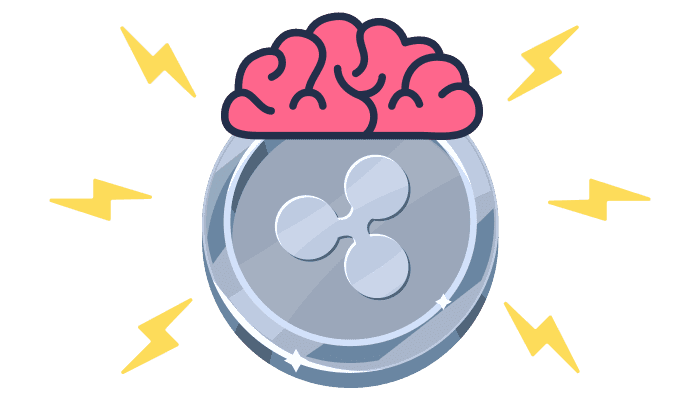Ripple isnt your average altcoin. Controversial at times as many 'love' it, whilst others 'hate it', it has nonetheless climbed to the position of the third most valuable cryptocurrency. We covered the basics of Ripple in our 12 days of crypto series. Today, we're sharing some key things you should know:
Ripple is a cross-border payment system that uses a digital currency called XRP
The Ripple system is open source, distributed and designed to support cross-border payments for financial institutions. Making international payments has long been a serious headache. It usually takes a few days and carries high costs both for the transfer and for currency conversions. Ripple aims to transfer currency in much the same way as the internet transfers information: almost instant (a few seconds) and almost free (a fraction of a cent in fees.) In the last year, the price of XRP has increased by 59,000%, leaping from $0.006 to as high as over $3. The Ripple company is now one of the most valuable American startups.
Ripple has the support of the mainstream financial industry
A number of mainstream financial companies - such as Santander and American Express - are working with Ripple to build a pioneering payment system. Lets face it: many digital currencies have no distinct purpose. XRP appeals to the mainstream financial industry because it has a single, practical use.
Ripple has actually been around longer than Bitcoin
The Ripple company is now in its teens, having formed five years before the release of Bitcoin. Back in 2004, web developer Ryan Fugger developed Ripplepay, the forerunner to Ripple. Much like the early Bitcoin developers, Fuggers goal was to build a decentralised financial system. Since then, the Ripple company has worked to improve their technology and expand their reach.
Ripple is working towards decentralisation
XRP is not fully decentralised. The Ripple company has been steadily working to reduce their control over the network while ensuring the technology can handle any potential challenges.Once the process is complete, Ripple could theoretically be more decentralised than Bitcoin. Ripple is taking
two main steps towards this goal:
- Increasing the number of validator nodes. This will reduce the chance of a single person or group gaining too much control over the network.
- Adding validators to users lists of trusted nodes. These will then replace nodes operated by Ripple as a means of supplying reliable information to Ripple users.
Ripple is very different to Bitcoin in some ways
There are some clear similarities between Ripple and Bitcoin. Ripple uses a ledger chain which records transaction details, like the blockchain. Integrating with user verification protocols and mainstream bank services has improved the security of the ledger chain. But there has been some debate about whether Ripple counts as a cryptocurrency, in part because it wasnt initially designed to fit that definition. XRP was developed as a fast, secure method of payment, not an investment - although it has proved to be a very profitable one for some. XRP does not need to be mined and there is no need for proof of work. Instead, the Ripple developers began with 100 billion XRP and have steadily been giving them away or selling them.
Ripple can be used to transfer pretty much any store of value
Ripple uses cryptographically signed transactions to store and transfer almost any asset. Some of the use cases include:
- Major fiat currencies (including dollars, euros, Canadian dollars, and Swiss francs.)
- Gold and silver.
- Company shares.
- Airplane miles.
- Mobile phone minutes.
XRP has, at times, had the second largest market cap of any cryptocurrency
In January 2018, XRP overtook Ethereum as the second largest cryptocurrency. The price of XRP reached over $3, meaning the market cap was over $120 billion. If $3 doesnt sound much compared to Bitcoins highs of nearly $20,000, remember there are 100 billion XRP available. Should the price of XRP hit around $7, its market cap may overtake Bitcoin.
This article has been published for educational purposes only and does not constitute as financial advice.